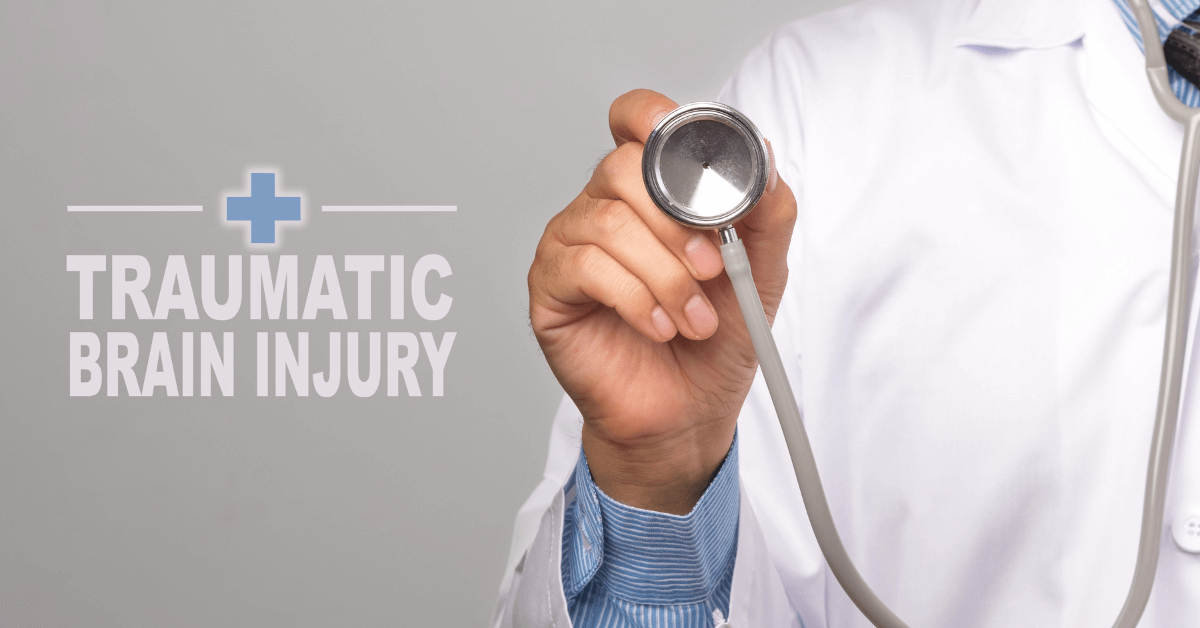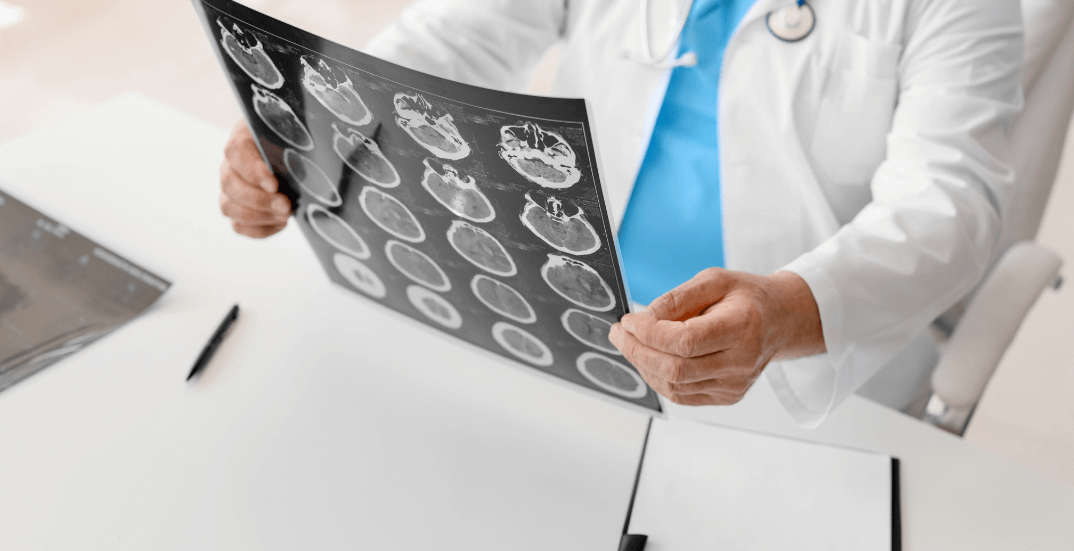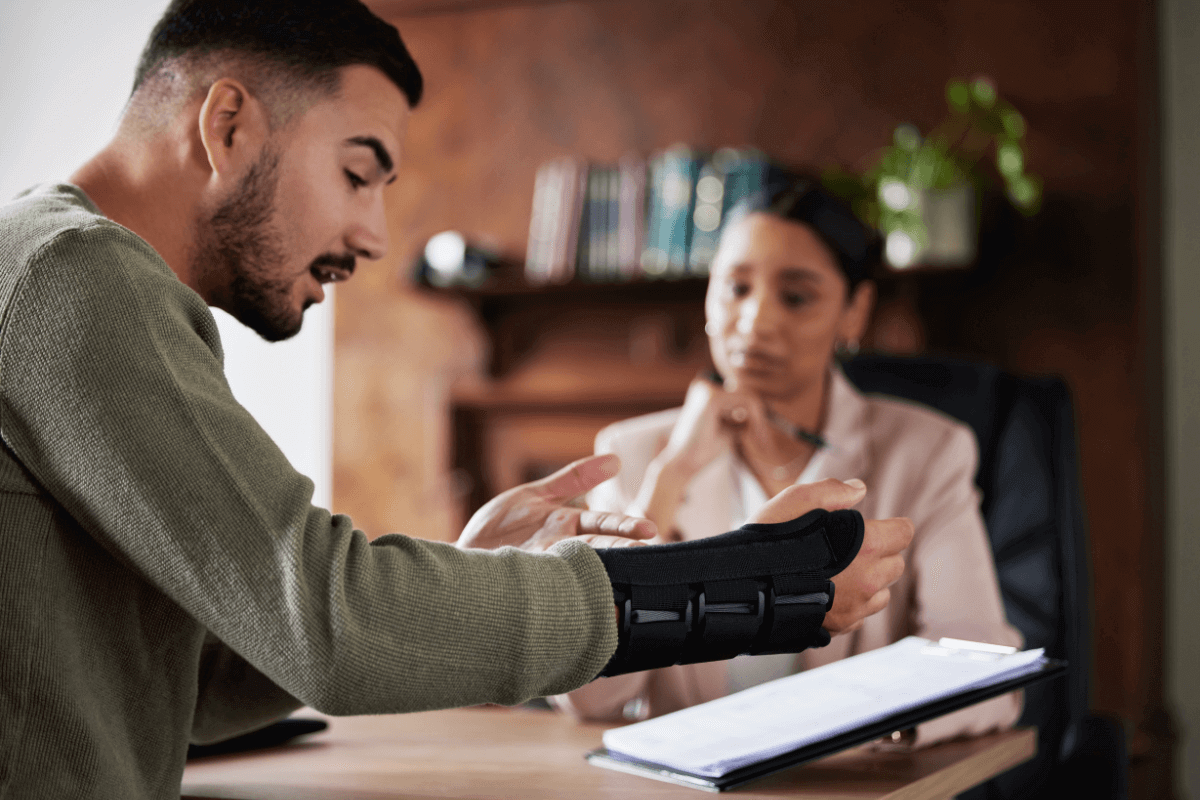
Partner at AKD Lawyers
Practice Areas: Personal Injury, Insurance Claims

Every year, millions of Americans suffer from injuries related to accidents, with car accidents alone leading to approximately 4.5 million medically consulted injuries annually. Among these injuries, traumatic brain injuries (TBIs) represent a particularly severe category, often resulting in devastating physical, emotional, and financial consequences. Understanding TBIs, their symptoms, and how to recover damages can be critical for victims and their families.
What Are Traumatic Brain Injuries?
Traumatic brain injuries are injuries to the brain caused by an external force, such as a blow or jolt to the head, that disrupts normal brain function. TBIs can range in severity from mild concussions to severe brain damage, affecting various cognitive and physical abilities.
According to the Centers for Disease Control and Prevention (CDC), TBIs are a leading cause of disability and death in the United States, resulting in over 61,000 fatalities each year. Hundreds of thousands more experience life-altering effects, including cognitive impairment, motor dysfunction, and emotional challenges.
Common Types of Traumatic Brain Injuries
There are several types of TBIs, each with unique characteristics and implications for recovery. Understanding these types can help victims identify their injuries and seek appropriate treatment:
Concussion
Concussions are perhaps the most common form of TBI. They typically occur after a mild blow to the head or body that causes the brain to move rapidly back and forth.
Although concussions often do not result in visible bruising or bleeding, they can cause significant chemical and cellular changes in the brain.
Symptoms may manifest immediately or develop days or weeks after the injury, complicating diagnosis and treatment.
Coup-Contrecoup Injury
This type of injury occurs when the skull is jolted forward and then backward, causing the brain to collide with the skull on both sides.
These injuries can lead to bruising and swelling and may result in various symptoms depending on the areas of the brain affected.
Due to the nature of the injury, they can often be difficult to diagnose as medical professionals may focus on only one side of the impact.

Contusion
A brain contusion is essentially a bruise on the brain caused by trauma. These injuries can range from mild to severe, with more serious contusions leading to swelling and bleeding within the brain.
Contusions often require immediate medical attention to prevent further complications, such as pressure on the brain.
Diffuse Axonal Injury
This type of injury occurs when the brain rapidly shifts within the skull, resulting in stretching or tearing of axons, which are the long fibrous cables that connect neurons.
Diffuse axonal injuries often lead to loss of consciousness and can be challenging to detect using standard imaging techniques, making them particularly insidious.
Penetrating Injury
Penetrating injuries occur when an object penetrates the skull and brain, leading to immediate and potentially life-threatening damage.
These injuries are easier to diagnose and treat but are among the most dangerous due to the risk of infection and significant brain damage.
Symptoms of Traumatic Brain Injuries
The symptoms of TBIs can vary significantly based on the type and severity of the injury. Common symptoms include:
- Headaches
- Dizziness and balance issues
- Fatigue or sleep disturbances
- Sensitivity to light and sound
- Blurred vision
- Changes in smell or taste
- Loss of consciousness
- Disorientation and confusion
- Memory problems
- Mood changes, including increased anxiety and irritability
- Seizures
Symptoms may not always appear immediately after an injury, making it essential for individuals to seek medical evaluation even if they initially feel fine. Early detection and treatment can improve outcomes significantly.
The Emotional Consequences of TBIs
In addition to physical symptoms, TBIs can have profound emotional and psychological effects. Many individuals experience mood swings, anxiety, depression, irritability, and changes in social behavior following their injury.
The emotional toll can affect relationships, work life, and overall quality of life. Recognizing these emotional changes is crucial, and seeking mental health support can help victims cope with their new reality.
Therapies such as cognitive-behavioral therapy (CBT) can be particularly effective in addressing mood disorders resulting from TBIs.
Support groups can also provide a valuable outlet for sharing experiences and finding community among others who understand the challenges associated with brain injuries.

Medical Evaluation and Rehabilitation
After sustaining a TBI, a comprehensive medical evaluation is essential. Healthcare providers will typically ask about the incident’s circumstances and any symptoms experienced.
Diagnostic imaging tests, such as CT scans and MRIs, are commonly employed to assess the brain’s condition and identify any abnormalities or injuries.
Rehabilitation plays a key role in recovery for TBI victims. The goals of rehabilitation include restoring lost functions, improving overall quality of life, and helping individuals regain independence.
A multidisciplinary approach often involves various healthcare professionals, including:
- Physical Therapists: These specialists focus on improving mobility, balance, and strength. They develop personalized exercise programs to help patients regain physical abilities.
- Occupational Therapists: These professionals work with patients to regain everyday skills, such as self-care tasks and household activities, that may have been affected by the injury.
- Speech and Language Pathologists: These experts help individuals recover their communication skills and address any swallowing difficulties that may arise from a TBI.
- Neuropsychologists: These specialists assess and treat cognitive issues, such as memory and attention problems. They can also help individuals develop coping strategies to manage the emotional aspects of their injuries.
Financial Implications: Coping with Medical Costs
The financial burden associated with TBIs can be overwhelming for victims and their families. Medical bills can accumulate quickly, especially with ongoing rehabilitation and therapy needs.
Additionally, many TBI victims face challenges related to lost wages and decreased earning potential, as their ability to work may be affected.
Navigating insurance claims and the legal aspects of personal injury cases can be complex and daunting. Understanding the specifics of personal injury law, including liability, negligence, and compensation, is crucial for victims seeking to recover damages related to their injuries.
Types of Damages Available
Victims of TBIs may be entitled to various forms of compensation, including:
- Medical Expenses: This includes current and future medical costs related to the injury, such as hospital bills, rehabilitation, and therapy.
- Lost Wages: If a victim is unable to work due to their injury, they may be able to claim compensation for lost income and diminished earning potential.
- Pain and Suffering: Victims may also seek compensation for physical pain, emotional distress, and a decreased quality of life resulting from their injury.
- Punitive Damages: In cases of gross negligence or intentional harm, victims may be awarded punitive damages to deter similar conduct in the future.
Contact a Personal Injury Lawyer
If you or a loved one has suffered a TBI due to an accident, seeking legal advice is essential. An experienced personal injury lawyer can guide you through the legal process, help you understand your rights, and ensure you receive the compensation you deserve. They will evaluate the specifics of your case, including liability and the extent of your damages, to build a strong claim on your behalf.
For a free consultation regarding your case, contact Alvendia Kelly & Demarest at 504-618-1624. You may deserve compensation to help cover medical bills, rehabilitation costs, and emotional damages.
Categories

In 2003, after being dissatisfied with the quality of legal care for victims of car accidents, Roderick ‘Rico’ Alvendia sought to establish a new firm focused on providing high-quality legal services to aid injured victims and their families. J. Bart Kelly, sharing Rico’s passion for upholding justice, joined the firm later that year, and established a partnership.






